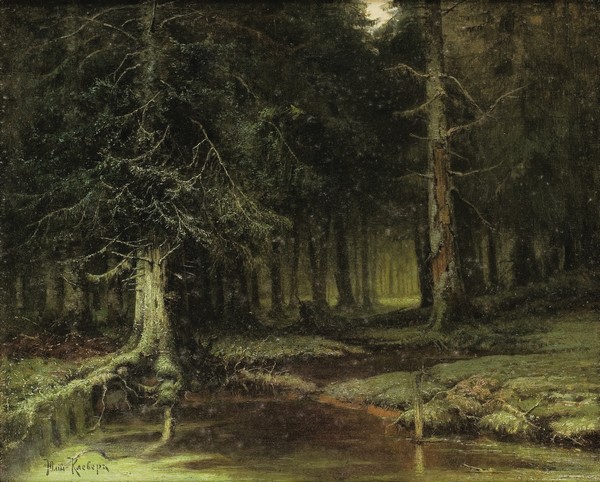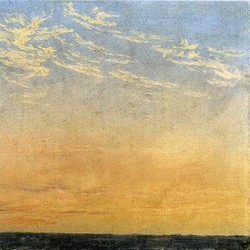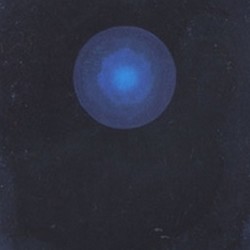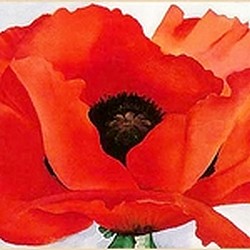
Among the times of the day most valued by photographers are the blue hour, which is, in the evening, the time between sunset and the dark night or, in the morning, the time between the first light and sunrise. That is, blue hour is an art concept that corresponds to twilight. These two periods are so interesting for photography because the light source, the sun, is below the horizon, but we see its reflection in the atmosphere, a diffuse light with a predominant deep blue colour that tinges everything. If the photographer is in nature, he can take advantage of orange colours on the horizon, because orange and blue are complementary colours and therefore match very well; if he's in an urban environment, he will match blue with orange tones of the street lighting. In any case, the blue hour is a sure asset to photographers, only surpassed by the golden hour, which is immediately before (at night) or later (in the morning).
Outside the world of photography, twilight is also known as the grey hour, because it is that time of the day when colours progressively fade until they turn into black, that is, into no colour (and I'm focusing in the afternoon, to not repeat every time the symmetrical situation in the morning). It's a time that's neither day nor night, contours blur and it's hard to recognize shapes; twilight can even make us see things that don't exist, and that has something of phantasmagorical. Needless to say that the romantic poets sang this time, which in Catalan is also known as "quiet hour" or "sad hour"; I don't know if similar names are in use also in English. Hermann von Gilm's poem set to music by Richard Strauss, Die Nacht, talks precisely about how the night advances and steals the colours; Zwielicht, by Joseph von Eichendorff, focuses on the restlessness that reigns when the night falls.
The first stanza of this poem presents nature as a threat; the trees are scared, the clouds are like nightmares, and the last verse expresses the fear of the poetic self: "Was will dieses Grau'n bedeuten?" [What does this horror mean?] The second stanza shows us the threat with a more concrete image: a roe, a usual symbol of the beloved, and a hunter, the symbol of the rival. The third one tells us that at this uncertain time you cannot trust even the best friend, that is, he's talking about the greatest solitude at a time of anguish. Finally, the fourth stanza is broken up into two ideas: the first two verses talk of hope, peace will be back after a restful sleep, but the last two warn about the dangers of the night and advise us to remain alert and awake.
This poem didn't have a title until 1836, when it was published in a volume of poetry by Eichendorff; the word zwieliecht [twilight] refers to the weak light that separates the day from the night, but also alludes to the feeling that overwhelms our spirit when involved in a uncertain situation. Originally, the poem is found in the novel Ahnung und Gegenwart [Premonition and Present], published in 1812, when Eichendorff was twenty-four. As we know from Wilhelm Meister's Apprenticeship, the poems that appeared interspersed in the text, often in the form of song sung by a secondary character, used to refer to the feelings or circumstances of the main character. I haven't read Eichendorff's novel, but I'll try to tell you the context in which the poem is found, a way of adding some information to the enigmatic verses.
The protagonist is the young Count Friedrich, who, alone in the forest, hears a female voice that sings the verses we know as Zwielicht. A few pages earlier, Friedrich regrets the cruelty of hunting, those dogs and hunters chasing defenceless animals; besides, he loves Rosa, who will give in the demands of the prince of that land and follow him to the hunting lodge. As you can see, we already identified the roe and the hunter. The treacherous friend could be the prince, who seeks Friedrich's friendship, but he could also be Count Leontin, friend of Friedrich and brother of Rosa. At least, the singing voice seems to be also identified, she's the Countess Romana, another of the women in Friedrich's life.
Zwielicht is the tenth Lieder of the Liederkreis, Op. 39 by Robert Schumann. The seven measures of the prelude are enough to immerse us in the perturbing atmosphere of the poem, and they do so in ancient style, which makes us think of Bach. In 1840, the audience was just beginning to rediscover his music, but composers used to study it and some of them, like Schumann, reworked it to achieve the magical effects of this song. It's a varied strophic Lied; the first three verses in each stanza are characterized by the melancholic beauty of the melody, while the fourth (except in the third stanza) is declamatory. With this structure we are also moving between two lights, as the poem does; after the final warning, we still don't know exactly what happened, but we're certain we listened to a great song. Our version is that of Bryn Terfel and Malcolm Martineau, one of those recordings that me regret that the singer put Lied aside. But that's life!
Dämmrung will die Flügel spreiten,
Schaurig rühren sich die Bäume,
Wolken ziehn wie schwere Träume -
Was will dieses Grau'n bedeuten?
Hast ein Reh du lieb vor andern,
Laß es nicht alleine grasen,
Jäger ziehn im Wald und blasen,
Stimmen hin und wieder wandern.
Hast du einen Freund hienieden,
Trau ihm nicht zu dieser Stunde,
Freundlich wohl mit Aug' und Munde,
Sinnt er Krieg im tück'schen Frieden.
Was heut gehet müde unter,
Hebt sich morgen neu geboren.
Manches geht in Nacht verloren -
Hüte dich, sei wach und munter!
Dusk prepares to spread its wings,
the trees rustle ominously,
clouds approach like heavy dreams -
what does this horror mean?
If you have a favorite roe,
don't let it graze alone;
hunters roam the forest, sounding their horns,
their voices straying hither and thither.
If you have a friend on earth,
do not trust him in this hour;
friendly might he seem in eye and mouth,
yet he plans for war in deceitful peace.
What today goes wearily down,
will lift itself tomorrow newly born.
Much goes astray at night -
beware - be alert and wide awake!
(translation by Emily Ezust)




 What is...
What is...









